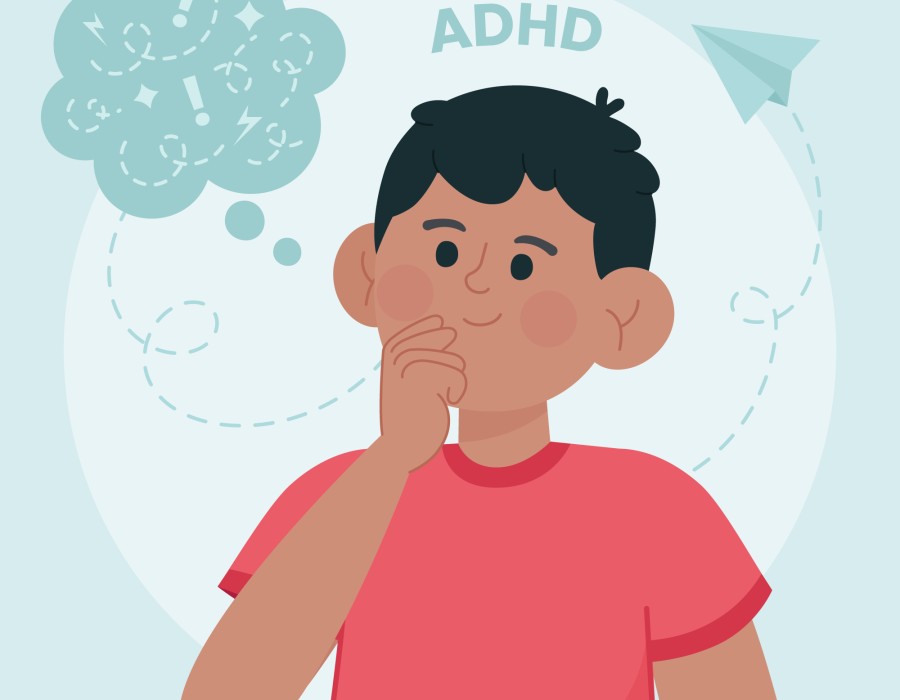An often occurring neurodevelopmental illness that affects both children and adults is Attention Deficit Hyperactivity illness (ADHD). While many people are aware of the classic symptoms—like inattention, hyperactivity, and impulsivity—ADHD can manifest in more subtle ways that significantly impact daily life. Recognizing the signs that indicate the need for counselling is the first step toward effectively managing the disorder.
What is ADHD?
A chronic pattern of hyperactivity-impulsivity and/or inattention that impairs functioning or development defines ADHD. This disorder affects various aspects of life, including academic performance, work efficiency, and interpersonal relationships. While ADHD is often diagnosed in childhood, many adults continue to experience its symptoms, sometimes without realizing they have the disorder. Seeking ADHD counselling can provide valuable support and strategies for managing these symptoms, helping individuals lead more fulfilling lives and improve their overall functioning.
Common Symptoms of ADHD
Symptoms of ADHD can be broadly categorized into two domains: inattention and hyperactivity-impulsivity. These symptoms may include:
- Inattention:
- Difficulty sustaining attention in tasks or play.
- committing thoughtless errors in assignments or other tasks on a regular basis.
- Difficulty organizing tasks and activities.
- Avoiding tasks that require sustained mental effort.
- Losing items necessary for tasks and activities.
- Hyperactivity and Impulsivity:
- Fidgeting or tapping hands or feet.
- Talking excessively.
- Interrupting or intruding on others.
- Difficulty waiting for one’s turn.
If you find yourself or someone you know exhibiting these behaviours, it might be time to consider counselling as a potential avenue for support.
Signs You Might Need ADHD Counselling
Here are several signs that indicate ADHD counselling could be beneficial:
1. Chronic Disorganization
Struggling to keep track of important tasks, appointments, or belongings may be a sign of ADHD. Chronic disorganization can lead to missed deadlines, lost items, and overwhelming clutter. A counsellor can help develop strategies tailored to your specific challenges, often incorporating ADHD treatment methods that improve organizational skills.
2. Difficulty Maintaining Focus
If you find it challenging to concentrate during conversations, meetings, or while completing tasks, it may signal ADHD. Frequent distractions and difficulty following through on projects can hinder productivity. Counselling can provide techniques to enhance focus and improve attention management.
3. Frequent Mood Swings
ADHD can be accompanied by emotional dysregulation, leading to rapid mood swings or irritability. If you notice that you’re frequently frustrated or overwhelmed, seeking counselling can help you develop coping mechanisms to manage these emotions effectively.
4. Struggles in Relationships
Relationships with family, friends, and coworkers may be strained by ADHD. Interrupting others, forgetting important dates, or struggling to follow through on commitments may lead to misunderstandings and resentment. A counsellor can provide tools to improve communication and strengthen relationships.
5. Low Self-Esteem
Individuals with ADHD often face challenges that can lead to low self-esteem, such as academic difficulties or negative feedback from peers. If you feel inadequate or overly critical of yourself, counselling can create a supportive environment to rebuild self-esteem and foster self-acceptance.
6. Procrastination and Avoidance
Frequent procrastination or avoidance of tasks can be linked to ADHD. This often stems from feeling overwhelmed or unsure about how to start a task. A counsellor can help break tasks into manageable steps and develop effective time management strategies.
7. Struggles with Time Management
If you often find yourself running late or misjudging how long tasks will take, poor time management may be a symptom of ADHD Counselling can assist you in developing planning skills and creating routines that enhance your ability to manage time effectively.
8. Impulsivity
Impulsivity is a hallmark symptom of ADHD. If you make decisions without considering the consequences, counselling can help you recognize these behaviors and develop more thoughtful decision-making processes.
9. Difficulty with Routine Tasks
Struggling with everyday tasks like cleaning, cooking, or managing bills can be frustrating. If routine responsibilities feel overwhelming, counselling can help identify specific barriers and create strategies to tackle these tasks effectively.
10. Coexisting Mental Health Conditions
Many individuals with ADHD also experience coexisting mental health conditions, such as anxiety or depression. If you struggle with these additional challenges, counselling can provide a comprehensive approach to treatment, addressing both ADHD and any coexisting conditions.
How Counselling Can Help
Seeking ADHD counselling can provide a safe space to explore your experiences. A qualified counsellor can offer:
- Individualized Treatment Plans: Tailored strategies to address your specific symptoms.
- Coping Mechanisms: Techniques to manage impulsivity and improve focus.
- Emotional Support: A non-judgmental environment to express feelings and frustrations.
- Skill Development: Training in organizational skills, time management, and effective communication.
Conclusion
Recognizing the signs that you might need ADHD counselling is a crucial step toward effectively managing the disorder. By seeking support, you can learn to navigate the challenges of ADHD and improve your quality of life. If you or someone you know is experiencing any of the signs mentioned above, consider reaching out to a qualified counsellor for guidance. With the right help and treatment options, individuals with ADHD can develop the skills and strategies needed to thrive personally and professionally.






Comments